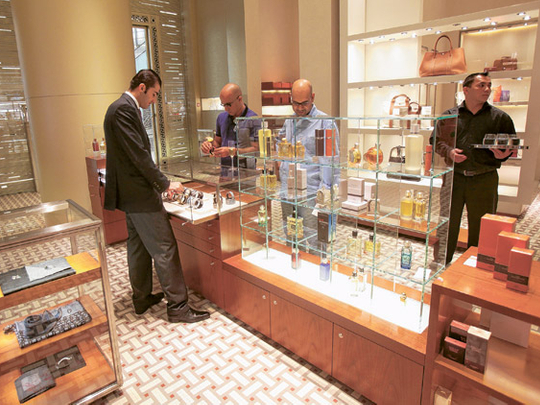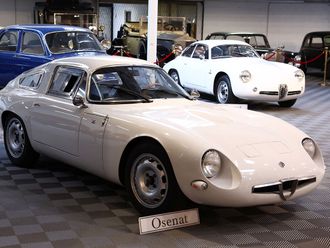
Dubai: You wouldn't think there was a recession on in the US. Certainly not going by the kind of numbers the luxury super-label Hermes has been pulling out from there in recent quarters. And all of this without even the hint of a discount sign being put up at any of its stores.
Across the Americas, the brand — known as much for its pricey handbags as for its fashion range — recorded a 26 per cent growth in sales during the first six months of the year, and looks set to carry the momentum through the full year and beyond.
Sales have been supported by the opening of new stores over the last years in all of the major cities, as well as creating a much larger outlet for Chicago. More recently, the very first men's fashion store from Hermes was opened in New York's Madison Avenue. This places Hermes in a uniquely advantageous position as the wider luxury market in the US is far from being on the route to recovery.
"Quite clearly we are benefiting from the step-by-step approach that — historically — has always been the way we have developed our presence," said Guillaume de Seynes, executive vice-president and a member of the family which has owned and run the business for generations.
Value untouched
"Our merchandise continues to be sold in our own stores and no discounts were offered even when the rest of the luxury market went crazy with them.
"The higher US sales have nothing to do with the weak euro, which emerged only this year. Our performance in 2009 was equally strong and the Hermes value remains untouched by anything related to the crisis. It's a question of growing at our speed and one we are comfortable with."
Obviously, the same value and standout performance is being coveted by others in the luxury business. In recent weeks, LVMH has acquired a 17.1 per cent stake in Hermes International for a value of $2 billion (Dh7.34 billion) plus. This was enough to set off speculation about a takeover.
But de Seynes is not impressed. And he adds it's a sentiment shared by the rest of the family, which owns around 73 per cent of the shares. "Obviously, I was taken by surprise at the development," said de Seynes, whose grandfather and father have both had long stints in running the business.
No need for change
On whether there wasn't a certain merit in creating a global luxury behemoth by aligning with LVMH, de Seynes said: "The family strongly believes that Hermes' success is based on continuing with the same values developed since 1837. In fact, I would say there's nothing to suggest it needs to change now."
Hermes has the financial strength to stand on its own. In the first-half of the year, global sales were up 20 per cent to total more than 1 billion euros. All the key markets did their part, with exceptionally strong growth coming from China where Hermes has 20 stores, including four which opened this year.
De Seynes did not agree that some of the Hermes cash hoard could be better utilised in acquiring niche luxury brands. "It's better served in doing the things we know best and that's investing in our own brand to maximise its potential."
As part of this, there will be more emphasis on Hermes' line of furniture and home products.
A new store opening next month in Paris will set the stage for that. This will in time open up another growth line in the Hermes portfolio.
"The Hermes philosophy is enshrined by what by grandfather used to say about our products and their prices: "They are not expensive, they are costly. It's obvious our buyers are able to make out that fine distinction."
First Saudi store
Hermes' grand strategy for the region will be further fleshed out with the opening of its first store in Saudi Arabia, set for some time in the second half of next year.
"We have already identified a local partner, a prominent Saudi family, and should soon start work on the first store," said Guillaume de Seynes, who added that it was a market which could have room for additional stores. In comparison to some luxury labels, Hermes might have taken its own time in getting to a direct presence the kingdom, the Gulf's largest market. But this does not perturb de Seynes. "We took seven years to get into Istanbul, which we finally did last December. We don't want to rush into anything. The general philosophy of this company is to think of the long-term consequence of any decision.












